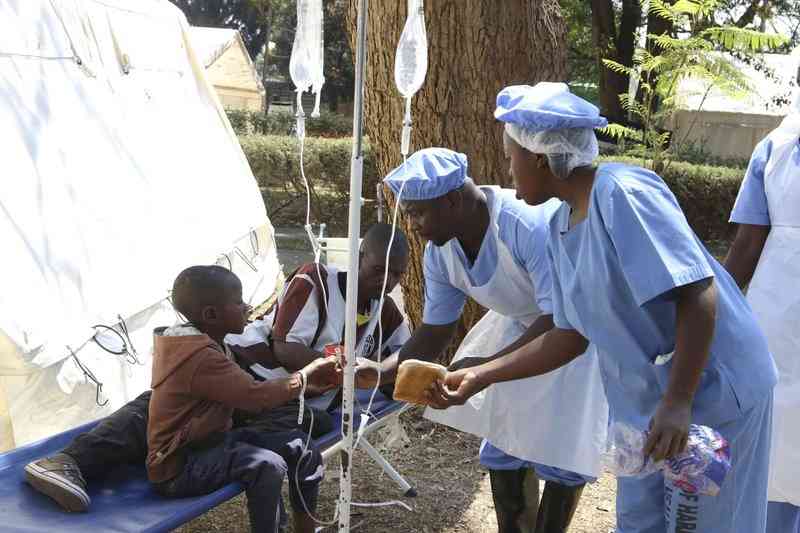
ZIMBABWE’S crumbling public health sector coupled with the never-ending economic crisis has seen the country become a haven of long-forgotten medieval diseases such as cholera and polio.
A United Nations Children’s Fund (Unicef) report says the long-forgotten diseases exposed the dire humanitarian crisis with climate change-induced shocks such as floods and droughts exacerbating the situation.
Zimbabwe is battling a cholera outbreak that has claimed over 100 lives and infected thousands others.
In a recent situational report, Unicef said the country’s ability to deal with the unfolding humanitarian crisis was in doubt.
“Currently the country is experiencing an outbreak of cholera since the 12th of February 2023,” the report read.
“Compounding the situation is the rapid population growth in urban settings which has resulted in communities settling in areas which are not serviced with water and proper sewer systems. This has resulted in the at-risk communities looking for alternative water sources — shallow wells, river water, which are contaminated.”
According to the report, perennial sewer blockages in urban residential areas have also been noted amid the sprouting of illegal settlements that are not serviced, providing breeding ground for the outbreak of diseases.
“Unprecedented attrition of health frontline workers has also resulted in a shortage of staff to manage the outbreak,” added the report.
- Chitungwiza sewer infrastructure collapses
- Chitungwiza sewer infrastructure collapses
- LSU runs dry, students resort to open defecation
- Malawi cholera death toll crosses 1,300: health official
Keep Reading
The country has recorded more than 6 000 confirmed cholera cases and 120 suspected cholera-related deaths.
Yesterday, Rudo Chikodzore, Health and Child Care ministry’s director for epidemiology and disease control, blamed the lack of knowledge on basic hygiene for the outbreak.
She said they were making efforts to contain the situation countrywide.
"As part of the cholera response, the environmental health teams are conducting contact tracing in affected communities to facilitate early detection and treatment. Cholera treatment centres have been set up at health facilities in affected communities while oral rehydration points (ORPs) have been set up in villages closer to the community,” Chikodzore said.
“Medicines and commodities for case management have been mobilised using a multi-sectoral, multi-stakeholder approach resulting in resources for immediate response being availed earlier. Risk communication and community engagement are also ongoing.”
The current cholera outbreak started in Buhera district, Manicaland province before spreading to several districts across the country.
The country has, since 2008, been facing cholera outbreaks, with the responsible authorities failing to contain the disease.











